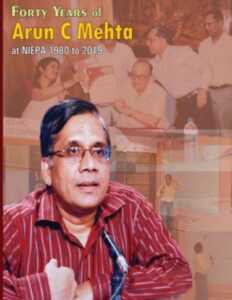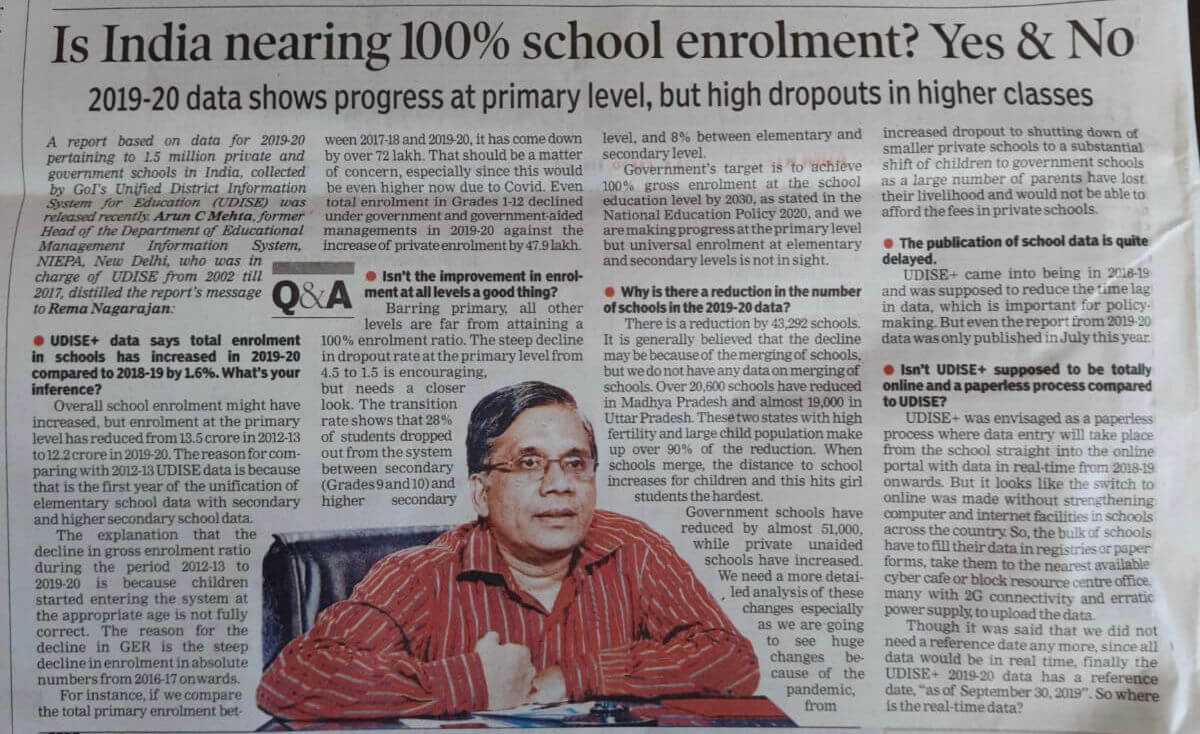FINANCIAL PARAMETERS
DPEP Financial Parameters
| Components | Permissible | Not permissible |
| Total Cost | The total budget (baseline cost) for one district should not exceed Rs.40 crores (Rs. 400 million) for the entire project period. However, this is a ceiling and not a recommendation. The actual cost depend on size and needs of the district and nature of interventions. | |
| Civil Works | Construction of New Primary school building, new classrooms, major repairs of existing school buildings, construction of toilets, rooms at ECCE centres, water supply and electrification, SIEMAT and other state educational facilities as approved by DPEP. Constriction of residential schools for ST children would be financed from the second year, subject to evaluation of the schemes and appraisal of the proposal.
Expenditure on Civil works cannot exceed 24% of the total budget. Maintenance would be financed as per state norms and be within the 24% ceiling. |
Construction activities in aided and private schools, NGOs, other associations or groups. Construction of offices barring office space for the State Society on a small scale within the SIEMAT or SCERT. |
| Management | State and District Project Office would be set up and financed by the project. This would include personnel furniture, equipment etc.There is a ceiling of 6% on administrative cost. This is a ceiling and not entitlement. | |
| Salaries | Post created under DPEP – either fresh recruitment or on deputation. This would include posts for State and district officers BRC, CRC, SIEMAT, ECCE centres. Alternative schooling Centres etc. | Salaries of already sanctioned but unfilled posts.Salaries of post that should have been created as per Govt. norms |
| Teachers for new schools to be opened under DPEP. | Such as teacher posts that ought to be created as per the teacher-pupil ratio. | |
| Teachers for existing school for third yearOnwards where extra enrolment and retention warrant such appointment.
Additional posts at existing institute like SCERT and DIETs created especially to handle DPEP tasks. |
Salaries of posts transferred to DPEP, e.g. if some of the functions relating to textbook Development Board to be financed by DPEP, the posts transferred would not be financed. Salaries of existing Government official holding position in DPEP on an ex-officio basis. E.g. a district project officer would not get his/her salary from DPEP.
Salaries of existing supervisory and administrative staff. |
|
| Incentives | Free textbooks to girls and SC/ST children. This would be applicable only for those states where the scheme does not exist. | Non-educational incentive such as free uniforms, incentives for attendance, nutrition, etc. |
| Early Childhood Care Education Centres (ECCE) | Centres in villages not covered under Integrated Child Development Scheme (ICDS).To be started initially on a limited scale. To be scaled gradually after evaluation.
Training of existing ECCE workers. Strengthening of educational inputs like provision of materials etc. Both development and purchase of pre-school materials are allowed. |
|
| Health | Medical check up of students to facilitates diagnosis of learning disabilities. Activities to Facilitate better linkages between Primary Health Centre and schools. | Medical services and supplies to schools. |
| Alternative School/Non-Formal Education | NFE centres as per the GOI scheme in states which are not covered by that scheme.Development of a variety of NFE models.
Extension coverage of viable and scaleable NFE models and instructional material. Production and distribution of material for NFE programmes financed by DPEP in project districts. Training related to NFE financed by DPEP. |
|
| School Improvement Facilities | Rs. 2000 per school per annum to improve school facilities according to locally felt needs and priorities. Account to be operated jointly by Village Education Committees/Mother Teacher Association and the school. This amount can be used for books and journals (other than handbooks), furniture, health check up, and bettering School environment, etc. Rs. 500 per teacher per annum to procure consumables and to develop, prepare and acquire teaching learning aids. | No other finance to schools for equipment.Supply of standardize package of teaching learning equipment. |
| Furniture & Equipment | Equipment and furniture needed for state society offices, the district units of the societies. MIS cell in the state and project districts, in SIEMAT, SCERT, BRC school clusters and other educational facilities as justified in the proposals and approved by the DPEP.All new schools constructed under DPEP in the first instance would be provided with furniture as per state norms. Once established and functioning, they would also qualify for the grant for teaching learning aids and facilities as above. | To begin with, no TVs/VCRs and audio-visual equipments would be provided to institutions below the level of DIET. |
| Educational Planning and Management and, other institutional arrangements | Strengthening of state capacity in the area of educational planning and management. A separate institute (SIEMAT) can be opened for the purpose. There is a ceiling of Rs.3 crores for this purpose. Existing institute like SCERT and DIETs can be augmented in terms of additional space, personnel and equipment as justified in the proposals and approved by the DPEP. | |
| Improvement of Learning content process and material | A design for learning processes and material based on rationalization and reduction of academic burden, principles of minimum levels of learning and multi grade teaching concepts. Financing for above purpose would be limited to development of a design up to camera ready stage.
Financing of printing of learning materials would be for the purpose of field trials only. Financing of activities relating to improving efficiency in the processes of production and distribution of teaching/learning materials. Printing and distribution (in project districts) of teachers handbooks and student workbooks (if not already financed by State Government). |
Printing of learning materials for the purpose of general distribution.
Costs of distribution of learning materials. |
| Training | Training of teachers of primary schools including private and aided schools. Training of pre-primary teachers/workers other than those under ICDS.
Training of administrative staff including supervisors. Training of VEC/MTA members and the NGOs. Training of alternative school/NFE instructors. |
|
| Development and printing of training materials, development of training modules for various training including that of teachers, ECCE workers and management staff. | ||
| Innovations | Innovation funds to be set up at the district, state and national levels. This can be operated from the second year of the project. NGOs, institution like SCERTs, SIEMAT, DIETs, BRCs, CRCs can be financed. Rs. 1 lakh per annum in each DPEP district. The cost of a single project should not exceed Rs. 1 lakh; its duration should not exceed 1 year.
At the state level a fund of Rs. 20 lakhs would be provided per annum. The cost of a single innovative project would not exceed Rs. 5 lakhs and its duration should not exceed 2 years. |
No diversion from these funds to other activities.No innovative project in the first year. |
| Awards | An awards programme for schools that could be organized at block level to promote competition among schools in areas such as enrolment and retention of girls SCs/STs. The award winning schools can use the awards for acquiring educational materials or facilities in the schools. | Cash scholarships/awards |
| Vehicle | State level: One vehicle for State Project Director, two vehicles for common pool, one for Director of SIEMT and one for common pool of SIEMT. District level: One vehicle for District Programme Coordinator and Vehicles for common pool calculated at the rate of one vehicle for every four blocks.
One vehicle for DIET for academic supervision through BRCs and school clusters. |
|
| Others | Consultancy services, professional fees etc.Grants to NGOs and other institutions for support to programme activities.
Research, Evaluation studies, impact studies. Fellowship |
Source:DPEP: Appraisal of Project Plans: A Ready Handbook, Educational Consultants India Limited, New Delhi, 1996





